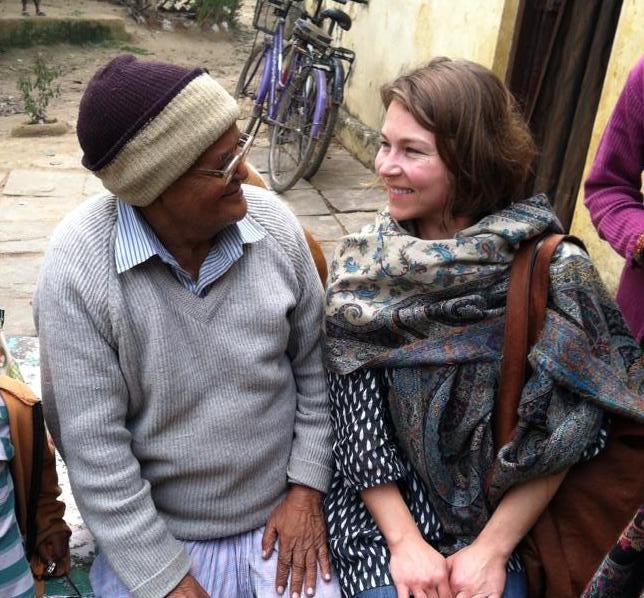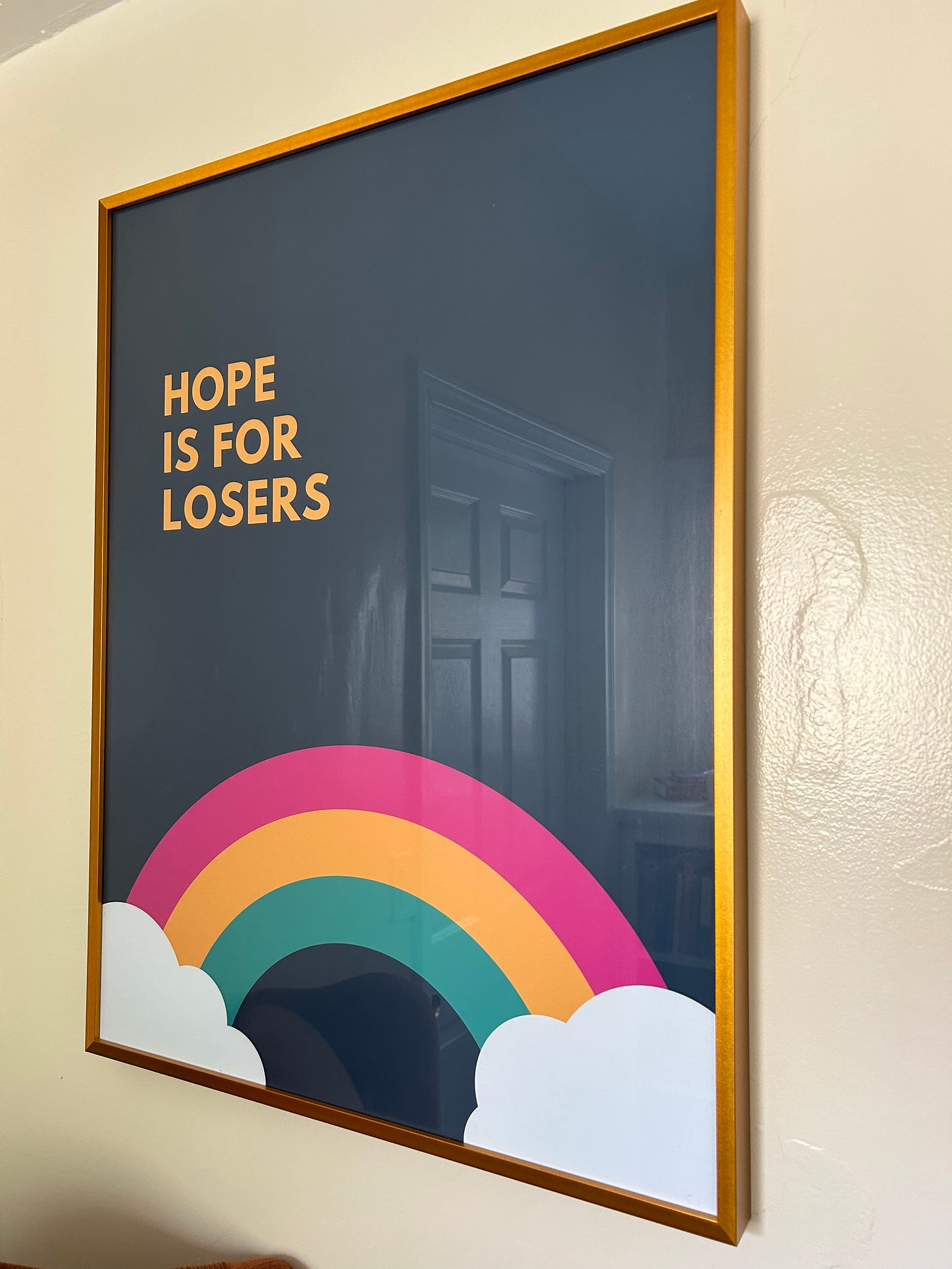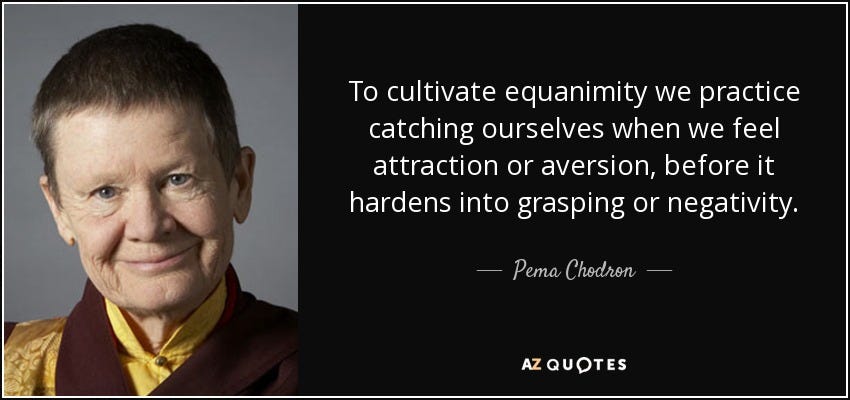Last week I revisited a familiar place from my past. It was the light-filled midcentury bungalow-turned-community space I’d spent hundreds of hours teaching and practicing yoga in before the wildfire and pandemic changed everything, and I had not been back since.
Stepping over its threshold was like traveling back in time as I padded my bare feet across the hardwood floor.
I’ve attended countless classes and community gatherings here, from a friend’s memorial service to sits with gifted teachers from around the world. It was a kind of homecoming.

The bungalow, with its distinctive, large arched window that lets the southern light stream in, has been refreshed, revived, repainted, and reappointed as it’s changed hands over the years.
This was a bright southern California Saturday morning, and as I eased my way into my old haunt, I made a decision to show up with a willingness to be surprised by whatever changes I might find.
And surprised I was.
On my merry way to the restroom in the back of the studio, I encountered this poster:
I stopped and stared at it for a while, not sure if I was reading it correctly. Nope—that’s what it says in plain type, with a rainbow to boot: Hope is for losers.
I was confused and dismayed. What did it mean?
I started to feel offended. I am, after all, spending a lot of my time right now thinking and writing and talking about hope. It felt like someone had taken a dump in my soup.
As I made my way back to my mat, it simmered. There has to be another way to look at this, I thought.1
I followed the Pilates teacher’s instructions and rolled over on my side, extending my top leg behind me, pointing my toes and making small circles, as “hope is for losers” circled in my mind.
I remembered a conversation I’d had about equanimity the night before.
I don’t really know how to practice equanimity, but I started experimenting because my brain needed a job as I held the plank position I was now in on my mat.
I tried engaging a thought experiment to shift my perspective: What if the poster is right?
I began exploring the ways in which “hope is for losers” might actually be true:
Hope is for losers if one simply conjures feelings of hope and does nothing, using it as an excuse for not taking action.
Hope is for losers if one’s definition of hope is actually the definition for false hope.
Hope is for losers if the losing is of the things we didn’t want anyway: despair, nihilism, defeatism.
Hope is for losers because hope and optimism were very uncool in the grunge-and-emo-laden 1990s, and all manner of styles from the 1990s are making a strong comeback.2
At the completion of this thought experiment, I was no longer upset. I realized that there could be any number of meanings ascribed to the poster. As the list grew to infinity, the poster and my irritation became very small, until they disappeared from my mind altogether.
I was not only relieved of the resentment, but joyful.
Joyful because I don’t know what the hell the poster means, and it has nothing to do with me anyway.
The initial struggle and irritation was that I had taken it personally. Until that sunny Saturday morning, I had not quite realized that hope had become my schtick.
There is a huge amount of freedom that comes to you when you take nothing personally.
― Don Miguel Ruiz, The Four Agreements
I’ve written previously about the insidious “us and them” thinking that can lead to horrific suffering. It was fascinating to witness, in retrospect, what I had not noticed before: that I had placed my “us” in the Hope Camp.
I didn’t really think there was an Anti-Hope Camp. And perhaps there isn’t. But as soon as I saw that poster, I created one. And that was precisely when I began to suffer.
In Living Skillfully, Dale S. Wright describes equanimity as “the learned capacity to experience pain without added suffering.”
I felt the pain of a framed piece of paper disagreeing with my assertion that hope is vital to our planet’s future. For a moment, I felt insulted, as if it was saying that I was a loser for being so naïve.
But in the 1990s, being a loser was very, very cool.
Which, as it happens, is what Alan Lokos writes is “A modern definition of equanimity: cool. This refers to one whose mind remains stable and calm in all situations.”
All situations is a high bar. I’ve seen some highly skilled yogis lose their cool. But it comes and goes in an instant, does not simmer. Like a duck that gives its ruffled feathers a good shake, they soon return to their steady state, calm and serene as the surface of the pond they glide across.
Because I’ve seen it happen, I know it can be done.

To readers: perhaps you have your own thoughts on equanimity. What do you do when you’re upset? What helps you find alternative perspectives? Have you ever been surprised by what you learned? Please let me know in the comments!
In retrospect, had I not been in this hallowed sanctuary, I might not have been so open to seeking alternative perspectives. But like a well-worn track, my mind seemed to quickly summon the philosophy I’d learned under that terra cotta tiled roof.
This is the reason that feels the most true, funnily enough, and it fits because the new owner is very style-conscious.








I just went up to empty the compost bits into the 2-sided cedar compost bin - and field mice had created the most darling and perfect nest of tiny sticks woven with moss in the "composted" side. See? Miracles every day!
I absolutely love this post! When I (constantly) lose my equanimity, I do the following: get outside into the light, even if it's pouring rain; do yoga and savasana; put my negative thoughts into the cedar worm composting bin to change into brown gold and maybe eventually become flowers; roll around on the floor with my two rescue indoor cats and my golden retriever Hanne; stare at the Great Blue Heron who perches directly outside the window above my toes as I sit here and write; cook and eat an amazing lunch with my husband; call my sponsor even if I don't want to; read Pema Chodron, Courage to Change, Byron Katie, or some inspirational piece like yours, Andrea. Thanks for this.